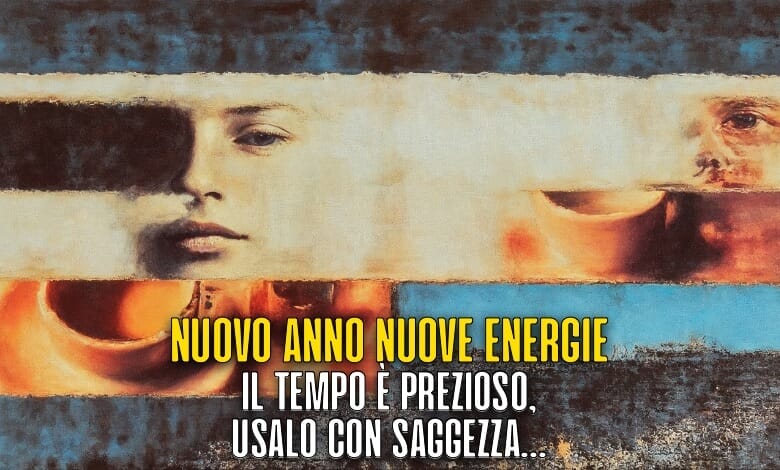Article index
By becoming adults, the ability of a child to read reality changes as much as his imagination. He discovers that there are not only words, that the voice is part of the content and must learn to manage it, to control that part of meaning. In fact, the voice adds to the words other meaning and thanks to its history, its uniqueness, sometimes also thanks to its inaccuracies, the text is enriched. It is necessary to open "the doors of perception" , to open the heart, to listen to the true enchantment of a voice, since it does not listen only by means of hearing, but "hears": the voice of those who sing sometimes enchants.
The dangerous song of the sirens
 The voice can seduce, as happens with the voice of the sirens. Circe warns Ulysses from their voice. Having wax in the ears is the only way to pass unscathed: remaining deaf to beauty allows you to remain indifferent to magic. Ulysses' soldiers have wax in their ears, but not him, he gets tied without wax, to enjoy that song, not to deprive himself of that pleasure, of that knowledge. Listening to a voice can be pleasant, but every pleasure is dangerous, since it works on a deep and naked part of the human being. The song of the sirens, through one's ambiguity, thus also moves in the sphere of erotic, pleasure, seduction, that is, of "leading to itself"
The voice can seduce, as happens with the voice of the sirens. Circe warns Ulysses from their voice. Having wax in the ears is the only way to pass unscathed: remaining deaf to beauty allows you to remain indifferent to magic. Ulysses' soldiers have wax in their ears, but not him, he gets tied without wax, to enjoy that song, not to deprive himself of that pleasure, of that knowledge. Listening to a voice can be pleasant, but every pleasure is dangerous, since it works on a deep and naked part of the human being. The song of the sirens, through one's ambiguity, thus also moves in the sphere of erotic, pleasure, seduction, that is, of "leading to itself"
The song of the muse and the spell
The song of the Musa also guides as that of the sirens. Only the poet can hear him, he "is done by" to transmit what he "listened" to Ulysses. Homer "does not tell what he has seen, he is blind, but what the muse told him". Thanks to the Musa, "the blind poet" sees "and makes the listeners" see the story he tells of. [...] Poetic singing arouses visions ». The acoustic sphere binds to that of the visual. Are not transported to other places, to read certain ways, listening to certain songs? Artaud proposes to "consider language in the form of a spell", to find "the religious and mystical meaning of which our theater has completely lost the meaning". It is an attempt to save or find the wonderful in art, aware of that need in everyday life.
Is the man thirsty for wonderful?
 The man is thirsty for wonderful, that wonderful that everyone had to abandon in his childhood and who needs to find in the rest of life. At the need to wonder, it is answered by any means since daily reality often is not enough for us. To achieve a desire, we also rely on the sphere of the magic: the magic formula helps to exercise a power that, for example, in the religious context is aimed at gods, and is capable of forcing their will. There is in the background the idea of the exchange: "From me, I will give you. Put at my disposal and I will put at your disposal ». To be magical, a formula must be precise. The prayer therefore is nothing more than a sort of magic formula "destined to fill the abyss between man and God". So a mass, which as a ceremony must follow precise formulas, is a staging, that is, a ritual useful to fill that abyss, and the song, which is part of that rite, is the expression of magic capable of filling the distance between human and divine. Listening to the concert of a wonderful voice is thus facing that spell.
The man is thirsty for wonderful, that wonderful that everyone had to abandon in his childhood and who needs to find in the rest of life. At the need to wonder, it is answered by any means since daily reality often is not enough for us. To achieve a desire, we also rely on the sphere of the magic: the magic formula helps to exercise a power that, for example, in the religious context is aimed at gods, and is capable of forcing their will. There is in the background the idea of the exchange: "From me, I will give you. Put at my disposal and I will put at your disposal ». To be magical, a formula must be precise. The prayer therefore is nothing more than a sort of magic formula "destined to fill the abyss between man and God". So a mass, which as a ceremony must follow precise formulas, is a staging, that is, a ritual useful to fill that abyss, and the song, which is part of that rite, is the expression of magic capable of filling the distance between human and divine. Listening to the concert of a wonderful voice is thus facing that spell.
The invisible song, journey at the end of the night
In fact, singing interprets the invisible. It is as if the voice, as sung, was "made" of divine substance, as if it were the breath of God, who is a creator breath, that contact with the invisible that remains in the body of the voice itself, which is not a body in substance , but in the meaning. One of the reasons why singing is part of numerous ancient and modern rites is its being able to harmonize the differences. In fact, the voice sung, as transparency, reaches all people and lies on each soul with different effects.
Jim Morrison intoned: "Break on Through to the Other Side". The attempt is still to break through the door and, through the voice of music, embrace the magic of one's present. The end is perhaps simply reaching what is hidden within our journey and, as Céline would suggest, thus land at the "end of the night".
Bibliographic notes:
- A. Cavarero, to multiple voices, Milan, Feltrinelli, p. 115-119
-Antonin Artaud, The theater and its double with other theatrical writings, Turin, Einaudi, 2000, p. 163
- Ernst Cassirer, philosophy of symbolic forms, tr. Eraldo Arnaud, Scandicci (FI), La Nuova Italia, 1988. Vol.ii, p. 311
Read if you also want to sing it is good









